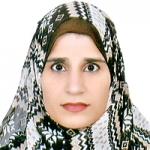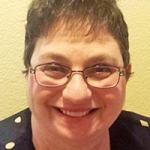 Breastfeeding Complications Online Course(s) & Continuing Education
Breastfeeding Complications Online Course(s) & Continuing Education
Access the latest clinical skills and research for Breastfeeding Complications for Lactation & Breastfeeding professional training. These Breastfeeding Complications online courses provide practice-changing skills and valuable perspectives from leading global experts. This Breastfeeding Complications education has been accredited for a variety of CEUs / CERPs and can be accessed on-demand, at your own pace.


Catherine Watson Genna BS, IBCLC is an International Board Certified Lactation Consultant in private practice in New York City. Certified in 1992, Catherine is particularly interested in helping moms and babies breastfeed when they have medical challenges and is an active clinical mentor. She speaks to healthcare professionals around the world on assisting breastfeeding babies with anatomical, genetic or neurological problems. Her presentations and her writing are enriched by her clinical photographs and videos. Catherine collaborates with Columbia University and Tel Aviv University Departments of Biomedical Engineering on research projects investigating the biomechanics of the lactating nipple and various aspects of sucking and swallowing in breastfeeding infants. She is the author of Selecting and Using Breastfeeding Tools: Improving Care and Outcomes (Praeclarus Press 2009) and Supporting Sucking Skills in Breastfeeding Infants (Jones and Bartlett Learning 2008, 2013, 2017) as well as professional journal articles and chapters in the Core Curriculum for Lactation Consultant Practice and Breastfeeding and Human Lactation. Catherine served as Associate Editor of the United States Lactation Consultant Association’s official journal Clinical Lactation for its first seven years.
Topic: Breastfeeding Strategies for Tongue-tied Infants - [View Abstract]
Topic: Critical Assessment of Apparent Tongue-Tie - [View Abstract]
Topic: Introduction to Cervical Auscultation - [View Abstract]
Topic: Lactation Support for Infant Biomedical Challenges - [View Abstract]
Topic: Organization of tongue movements before and after frenotomy for posterior tongue-tie: an Ultrasound analysis - [View Abstract]
Topic: Positioning and Latch for Breastfeeding - [View Abstract]
Topic: Ultrasound Analysis of Sucking: Tongue-Tie and Confounders - [View Abstract]
Topic: Using Breastfeeding Supplementers - [View Abstract]
Infants with biologically based sucking problems can often breastfeed with specific lactation management and supportive techniques. This presentation provides an overview of some common medical problems that cause feeding difficulty and strategies that can help an infant with suboptimal sucking skills to feed more normally.
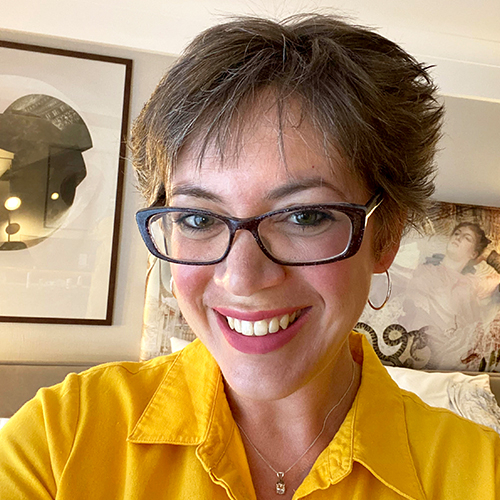
More Support in a Coffee Shop Than in the Hospital: Experiences of Breastfeeding Children With Medical Complexity

Lyndsey is an experienced paediatric nurse, children’s public health nurse, International Board Certified Lactation Consultant, Holistic Sleep Coach, researcher and responsive parenting advocate. She has worked in hospitals, clinics, the community and within clients’ homes for 20 years, serving within the UK NHS, in private practice and voluntarily.
The co-founder and clinical director of the Holistic Sleep Coaching program, Lyndsey regularly teaches internationally, as well as providing mentorship for newer sleep coaches. She is passionate about responsive feeding, gentle parenting and promoting parental confidence and well-being.
With Professor Amy Brown, she is the co-founder of Thought Rebellion – an education and publishing company seeking to inspire, challenge and equip professionals and writers in the parenting, lactation and perinatal space with an evidence based revolution.
Lyndsey is currently a PhD researcher at Swansea University, exploring the needs and challenges of medically complex breastfed infants and children. In 2019 she set up the Breastfeeding the Brave project to raise awareness of the unique breastfeeding needs of chronically, critically, and terminally ill children in the paediatric setting. The mother of a childhood cancer survivor, she often talks about the impact of chronic serious illness on families, and seeks to support other families living through a serious childhood illness.
Lyndsey is a respected international speaker and teacher, and regularly speaks out against the dominant sleep training culture, as well as advocating for the rights of families to receive high-quality, compassionate and expert support. She is the author of Holistic Sleep Coaching (2018), Let’s talk about your new family’s sleep (2020), Still Awake (2021), Breastfeeding the Brave (2022) and co-author of The Writing Book (2022).
Topic: Breastfeeding Children with Cancer - [View Abstract]
Topic: More Support in a Coffee Shop Than in the Hospital: Experiences of Breastfeeding Children With Medical Complexity - [View Abstract]
Topic: Supporting Families With Sleep While Optimising Attachment and Responsive Feeding - [View Abstract]
Topic: You Can't Sleep With Your Foot On The Gas Pedal: How To Improve Sleep By Tapping Into Calm - [View Abstract]
Breastfeeding may be natural, but it isn’t easy. Initiating and maintaining breastfeeding, and overcoming barriers can be hard for anyone, but breastfeeding a child with illness or medical complexity in the paediatric setting is uniquely challenging and presents different obstacles than those commonly experienced by parents feeding healthy term newborns or preterm neonates.
Current policies, BFHI standards, and training are weighted towards the initiation of breastfeeding or the establishment of effective pumping for a preterm infant. The needs and challenges of children beyond the neonatal period are largely unresearched. My systematic review in 2021 found seven key themes that provided some explanation as to why breastfeeding a child with medical complexity in paediatrics is different and more challenging to achieve.
My qualitative study in 2022 has provided novel insight and new data into the specific challenges encountered by parents of children with acute, chronic, complex and life-threatening illness in the paediatric ward or paediatric intensive care unit and provides tentative explanations and suggestions for how to approach this unique population to optimise their feeding experience.
In this presentation, learners will understand how to view the paediatric population as distinct from the maternity and neonatal population and appreciate some of the unique difficulties that these families face. Learners will also develop understanding of the need to merge clinical and lactation skills in a collaborative approach to care. Finally, new insights and awareness of the importance of expanding current training to meet the needs of this population will be shared.
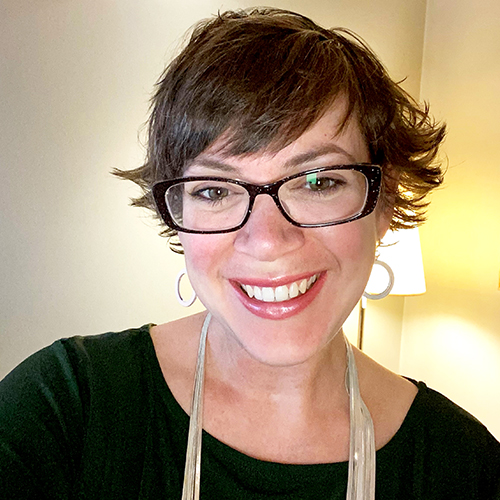
View Details / Enroll
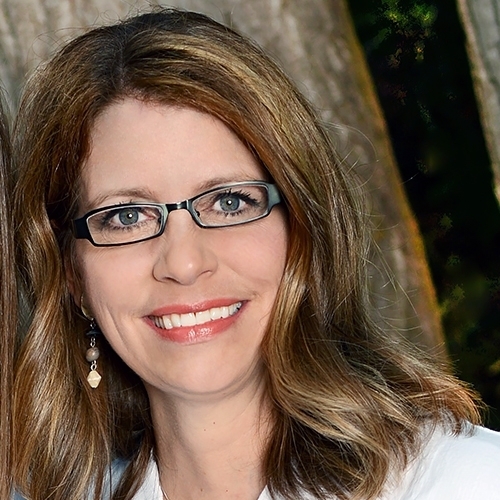
Neurologic Conditions and The Breastfed Infant

Ellen is the lactation services manager at Intermountain Healthcare Primary Children’s Hospital. She has a Master’s Degree in Public Health Nutrition, is a Registered Dietitian and an International Board Certified Lactation Consultant. Ellen has the unique advantage of using her nutrition knowledge as a lactation consultant. She has a passion for providing human milk for patients with nutritional challenges such as chylothorax and colitis. Her work on fat free human milk is published and has received national review. One of her career goals is to increase knowledge of nurses and healthcare providers regarding human milk immunology and breastfeeding thus improving lactation duration. Ellen has worked with the special needs breastfeeding dyad for the past 20 years at Primary Children’s Hospital to promote breastfeeding and human milk feeding. She designed, set up and manages the Mothers Milk Center at Primary Children’s hospital which opened in 2015. Ellen has presented at local, state and national meetings. She also has experience working at a corporate level with lactation consultants developing breastfeeding policies and protocols as well as lactation education programs for nurses and health care professionals.
Neurologic conditions often have a significant impact on the breastfeeding/chestfeeding dyad. The majority of these conditions are congenital, however some may be acquired during the first year of life. Breastfeeding/chestfeeding management of the hypotonic and hypertonic infant will be discussed. Hypotonic neurologic conditions that will be reviewed include floppy infant syndrome, infantile botulism, medullary lesions, Prader-Willi Syndrome and Trisomy 13, Trisomy 18 and Trisomy 21. The hypertonic neurologic conditions cerebral palsy and drug exposed infant will be discussed along with neural tube defects and Congenital Zika Syndrome. Case studies of special needs babies with these neurologic conditions will be presented.
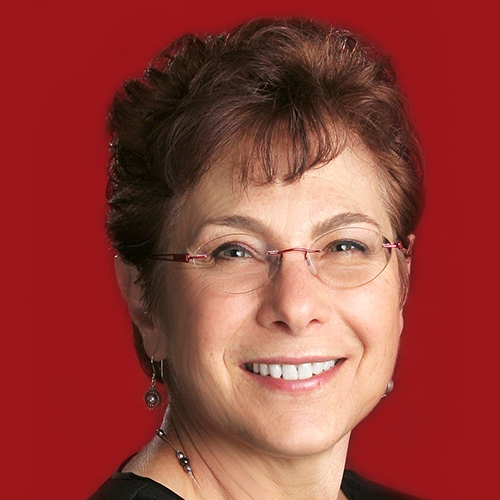
Optimizing the Feeding Abilities of Premature Infants to Support Breastfeeding

Robin P. Glass, MS, OTR, IBCLC practices occupational therapy at Seattle Children's Hospital in Seattle, WA and is an Assistant Clinical Professor in the Department of Rehabilitation, at the University of Washington. Her clinical specialty is the treatment of infants, with a strong focus on feeding and swallowing issues. She provides treatment for hospitalized infants including the NICU with a wide range of medical and developmental diagnoses. She is NDT trained and is a 20 year Board Certified Lactation Consultant. Robin has extensive national and international experience speaking about infant feeding.
Robin has received numerous awards including the National Association of Neonatal Therapists (NANT) 2015 Pioneer Award and the 2018 Nancy Danoff Spirit of Service award from the Breastfeeding Coalition of WA and Nutrition First. Robin has co-authored numerous journal articles as well as the book Feeding and Swallowing Disorders in Infancy: Assessment and Management.
Topic: Optimizing the Feeding Abilities of Premature Infants to Support Breastfeeding - [View Abstract]
For the baby born prematurely, learning to breast/chestfeed may be more complex. There are factors related to the infant, the environment and to the lactating parent that can make this process more challenging. Many babies often leave the NICU not fully breastfeeding and continue to struggle once at home. This presentation will describe, evidence-based approaches to developing breastfeeding in the premature infant. It will review developmental and co-morbid factors affecting the infant’s feeding acquisition and describe interventions that can be used to improve breastfeeding skill.
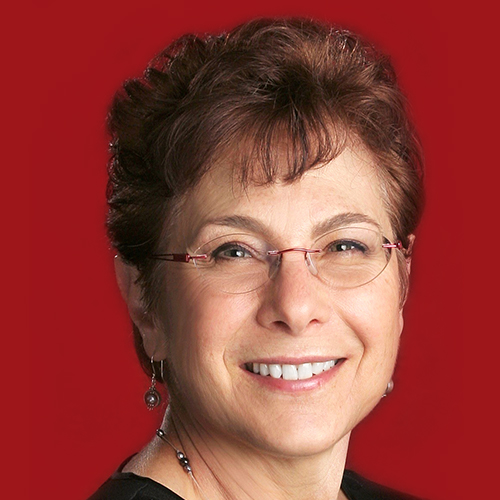
View Details / Enroll
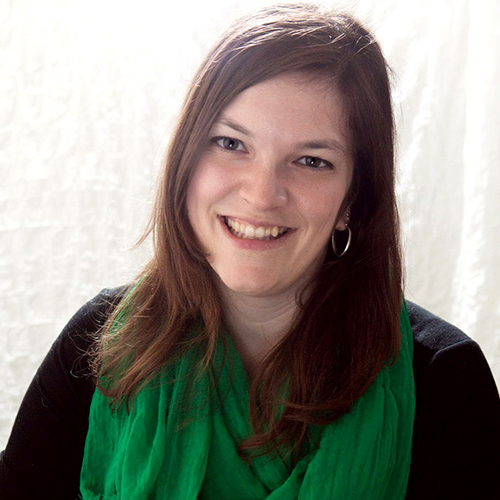
Overcoming Challenges to Feeding: Supporting Parents with Physical, Mental or Socioemotional Differences - Part 1

Julie Matheney knew when she was ten years old that she wanted to feed babies for a living. She earned her Masters in speech-language pathology and has worked with feeding and swallowing disorders for over a decade. While most people assume speech therapists teach children who stutter or work on ""r's and s's"", the bulk of her job is feeding and swallowing as part of a hospital based, rehabilitation team. The same things you speak with, you eat with! Over the past decade working in the NICU, she discovered her passion for working with breastfeeding families and became an IBCLC in 2018.
She transitioned out of the hospital in July 2021 and currently works full time in private practice as a lactation consultant in Los Angeles. She enjoys helping the whole family in the feeding process to meet their goals.
Her loving husband is always supportive of her in her vocational passions and was instrumental in launching her private practice. She has two young daughters, both of whom were exclusively breastfed until two years old.
Topic: Overcoming Challenges to Feeding: Supporting Parents with Physical, Mental or Socioemotional Differences - Part 1 - [View Abstract]
Topic: Overcoming Challenges to Feeding: Supporting Parents with Physical, Mental or Socioemotional Differences - Part 2 - [View Abstract]
For years we have learned how to support breastfeeding for the infant with differences and disabilities. There is a lack of education and support however for mothers/lactating parents who face these same challenges. Studies show parents with differences and disabilities are less likely to receive adequate prenatal care and breastfeeding assistance compared to those without disabilities. How do we support lactation for parents who have physical, mental, and emotional/social differences? Each type of difference or disability also has specific needs for adaptations, to the environment and to the tools we would use to facilitate position, latch, and lactation success. This session helps participants use critical thinking to ask the right questions, make adjustments to the environment, and create functional plans specific to the individual needs of the parent. The three domains we will be discussing are physical challenges, social/emotional challenges, and the neurodiverse.
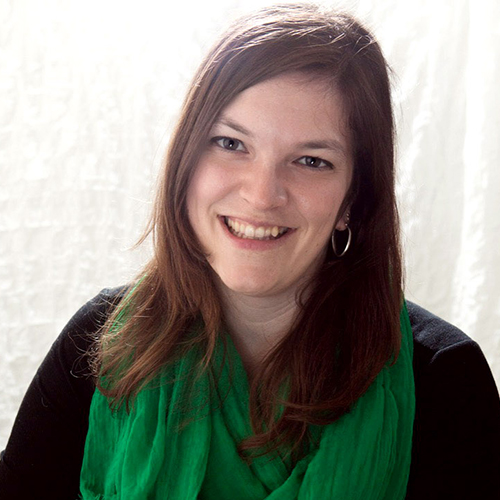
View Details / Enroll

Overcoming Challenges to Feeding: Supporting Parents with Physical, Mental or Socioemotional Differences - Part 2

Julie Matheney knew when she was ten years old that she wanted to feed babies for a living. She earned her Masters in speech-language pathology and has worked with feeding and swallowing disorders for over a decade. While most people assume speech therapists teach children who stutter or work on ""r's and s's"", the bulk of her job is feeding and swallowing as part of a hospital based, rehabilitation team. The same things you speak with, you eat with! Over the past decade working in the NICU, she discovered her passion for working with breastfeeding families and became an IBCLC in 2018.
She transitioned out of the hospital in July 2021 and currently works full time in private practice as a lactation consultant in Los Angeles. She enjoys helping the whole family in the feeding process to meet their goals.
Her loving husband is always supportive of her in her vocational passions and was instrumental in launching her private practice. She has two young daughters, both of whom were exclusively breastfed until two years old.
Topic: Overcoming Challenges to Feeding: Supporting Parents with Physical, Mental or Socioemotional Differences - Part 1 - [View Abstract]
Topic: Overcoming Challenges to Feeding: Supporting Parents with Physical, Mental or Socioemotional Differences - Part 2 - [View Abstract]
For years we have learned how to support breastfeeding for the infant with differences and disabilities. There is a lack of education and support however for mothers/lactating parents who face these same challenges. Studies show parents with differences and disabilities are less likely to receive adequate prenatal care and breastfeeding assistance compared to those without disabilities. How do we support lactation for parents who have physical, mental, and emotional/social differences? Each type of difference or disability also has specific needs for adaptations, to the environment and to the tools we would use to facilitate position, latch, and lactation success. This session helps participants use critical thinking to ask the right questions, make adjustments to the environment, and create functional plans specific to the individual needs of the parent. The three domains we will be discussing are physical challenges, social/emotional challenges, and the neurodiverse.

View Details / Enroll
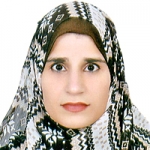
Phenylketonuria and Breastfeeding: Facts, Challenges and Reality

Doctor Asma'a Kurdi , Syrian family physician MRCGP member certified since October 2013, was the first lactation consultant doctor in Ajman certified on October 2008 ,recertified October 2013. worked as a GP in UAE , Ajman PHC since 02/2006 till 08/ 2016, with big efforts to enhance breastfeeding practice among colleagues and patients, was an active member in the breastfeeding support group ,she presented many lectures in the basic 20 hours breastfeeding training courses for health workers in Ajman .a mother of 4 children , 3 of them are PKU , with her knowledge and faith in breastfeeding she managed to breastfed them for more than 2 years and kept them healthy and normal children. She had special interest in PKU researches and but huge efforts to initiate a PKU family association in UAE . an active member in Arabic PKU mothers what's up support group ,and low protein recipes instagram page .
Breast feeding can be challenging in some special situations, phenylketonuria is one of these conditions that requires a lot of knowledge and support.
PKU is an inherited metabolic disorder that needs a special protein free diet to be followed lifelong, to grow normally, to avoid the irreversible and severe intellectual impairment and developmental abnormality.
Years ago PKU was an absolute contraindication for breastfeeding, but with more research on the disease and the breast milk components, it is now strongly suggested to breastfeed a PKU baby along with his or her special phenylalanine free formula under close supervision from a dietitian and experienced breastfeeding supportive pediatrician.
It is a difficult but achievable task, a prime example is my 3 PKU children who I managed to breastfeed for almost 2 years. Along with their PKU formula and special low protein diets they are enjoying healthy, normal mental and physical development.

View Details / Enroll
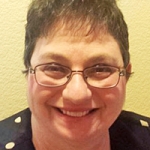

Debbie Albert, PhD, BSN, IBCLC, is a full time lactation consultant at UC Davis Med Center--working with all facets of their lactation service; including maternity floor, level IV NICU, pediatrics, PICU, and Employee Breastfeeding Support Program. She is also a prenatal instructor with their patient education program, nursing staff educator, and chairs the UCD Breastfeeding Task Force and the UCD Breastfeeding Support Program Committee. She received an Employee Excellence Award June, 2013 and June, 2015, and a Nursing Excellence Award in May, 2016. In addition, UC Davis programs have received IBCLC Lactation Care Awards and Sacramento Coalition and California State Coalition Breastfeeding Awards. Debbie has lactation experience in Florida, Texas, and California. She is Member of the LEAARC Board, a member of ILCA’s Equity Committee, and UCD Status of Women Committee. She is married to Dan Albert for 33 years, and has two sons, Josh (28), and David (24).
Raynauds is an illusive condition that tends to be confused with other conditions, misdiagnosed, and consequently rarely treated--causing the breastfeeding dyad to suffer. This program provides a review of the symptoms, medical and lactation resources, and clinical applications that facilitate most the effective treatment/comfort for the patient.

View Details / Enroll
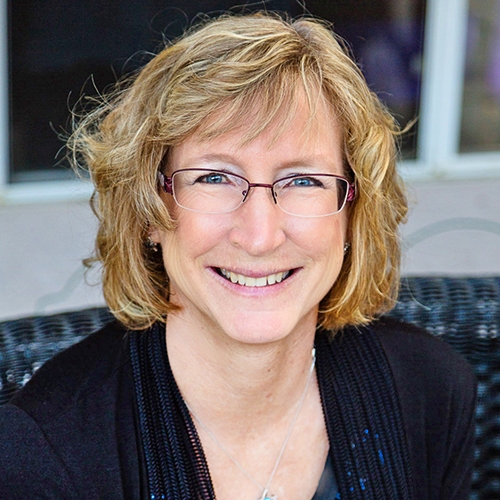

Lisa Marasco has been working with breastfeeding mothers for 35 years and has been Internationally Board Certified since 1993. She holds a Master’s degree in Human Development with specialization in Lactation Consulting and was designated a Fellow of ILCA in 2009.
Lisa is co-author of Making More Milk: The Breastfeeding Guide to Increasing Your Milk Production, a contributing author to the Core Curriculum for Interdisciplinary Lactation Care, and a Cochrane Collaborative author. She is employed by WIC of Santa Barbara County while she continues to research, write and speak. In addition, Lisa is affiliated with La Leche League of So. Calif/Nevada, and serves on the Breastfeeding Coalition of Santa Barbara County.
Topic: Deciphering the Lactation Curve - [View Abstract]
Topic: Getting a Better Grip on Prolactin - [View Abstract]
Topic: Recognizing When Things Are Heading South - [View Abstract]
Topic: The Mysterious Milk Ejection Reflex - [View Abstract]
Breastfeeding is normally a robust process, but sometimes mothers and babies end up in a gray area where your gut isn’t sure that everything is going to be okay. When low milk production concerns present, where do you start? Is it real or perceived? Delayed, secondary or primary? Which came first, the chicken or the egg? This session walks through the assessment process to determine whether a problem exists and what the cause of a low milk supply might be.
View Details / Enroll


Joy MacTavish, MA, IBCLC, RLC is an International Board Certified Lactation Consultant and certified Holistic Sleep Coach focusing on the intersections of infant feeding, sleep, and family well-being. Through her business, Sound Beginnings, she provides compassionate and evidence-based support to families in the greater Seattle area, and virtually everywhere else. She entered the perinatal field in 2007 as birth and postpartum doula, and childbirth and parenting educator. Joy holds a Master of Arts in Cultural Studies, graduate certificate in Gender, Women and Sexuality Studies, and two Bachelors degrees from the University of Washington. She enjoys combining her academic background, analytical skills, and passion for social justice into her personal and professional endeavors. Joy serves as an Advisory Committee Member and guest speaker for the GOLD Lactation Academy. When not working or learning, she can be found homeschooling, building LEGO with her children, or dreaming up her next big adventure.
Topic: Full-Term Breastfeeding/Chestfeeding: Benefits, Considerations, and Ways to Offer Support - [View Abstract]
Topic: Mindful Breastfeeding: How Lactation Professionals Can Support Calm and Connection - [View Abstract]
Topic: Sending Reports: What’s in it for IBCLCs? - [View Abstract]
Topic: Supporting Clients Facing Fertility Treatment - [View Abstract]
Topic: The Intersection Between Lactation, Sleep, and Family Well-Being - [View Abstract]
Topic: Weaning: Supporting Families Stopping Lactation and/or Ending Their Breastfeeding/Chestfeeding Relationship - [View Abstract]
Many breastfeeding/chestfeeding parents seeking to grow their families through Assisted Reproductive Therapies (ART), including IVF will be faced with limited or conflicting information and challenging decisions. When they turn to lactation professional for support it’s important that the receive knowledgeable and compassionate care. This presentation will equip lactation professionals with an understanding of not only the various therapies, procedures, and medications, by the mental and emotional aspects that breastfeeding/chestfeeding families may experience in their fertility journey.







